What is a Hacker? with Emmanuel Goldstein.

Kids hack their Dad's computer on her Raspberry Pi
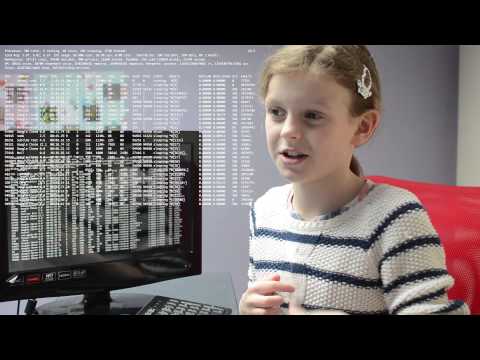
Raspberry Pi
The $35 Raspberry Pi is the most handsome in a class of computers called Single-board computers. They just released version 4, so make sure you get that one; and don’t forget a monitor. BestBuy does sell the PI, packaged in the Raspberry Pi 4 Cana Kit. Personally, I think getting the original keyboard and mouse is really cool, I am not a fan of the plastic case and would go for a cool looking Heat Sink “Case” - and then probably short something out. Good news is that ashens has a two part review of all the popular cases here you go: Part 1 and Part 2. Heads up, ashens is an odd British man that utters odd British phrases.
Raspberry Pi 4
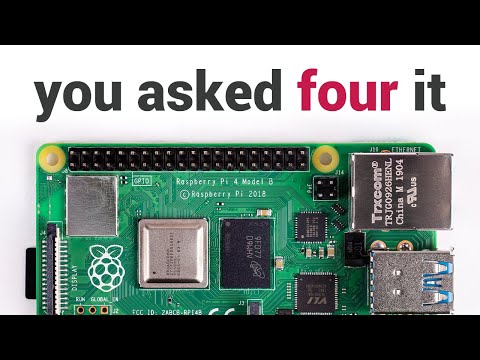
What's inside the Raspberry Pi 4 Desktop Kit?
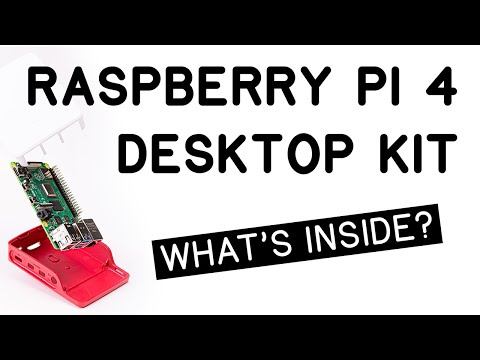
Portable Monitor

Monitors
There is a class of monitors called Portable Monitors it is still nice to have a desk one, but if you are wondering which one to get; get a portable first (the cheapest one is $99), then you can take it to Starbucks, plug in your PI, keyboard and mouse, and headphones; and compose some music with LMMS whilst pondering album art with GIMP.
Screen Projector

Don't forget about Projectors as those too are a kind of monitor (the cheap ones are $50 - $75). A projector turns any wall into a monitor.
Heist
She likley stole her daddy’s dad’s password by using her older brother’s key logger. To log into her dad’s computer she uses the ssh command. ssh is just a program that establishes a secure (encrypted) connection between two computers. She executes ssh alex@192.168.1.27 at 1:27. And begins using the ssh program.
The remote shell, for convenience sake, looks almost the same as her own local shell. Even though very little changes on her screen she is in a full-screen program now, and once she is authenticated her shell prompt changes to that of the remote system. It goes from pi@calebpi ~ $ to []~$[].
A shell prompt is the thing that indicates that you are free to type commands. Her dad’s shell prompt is broken, he messed up with whatever was supposed to go in between those square brackets, it maybe that he is using fonts that the Raspberry PI does not have, or some mess like that. My prompt as I write this is [user@computer warrior]$ that means username is user, my computer’s network name is computer, and the directory I am in is warrior.
The dollar sign $ indicates that I, alex, and pi are normal users. You can escalate your system privileges to become a system administrator where you can read or delete other user’s files. On most systems the dollar sign would then change to the pound sign # to indicate that care must be taken as you are in special privileges mode, often called root.
Warning
Now, when the Little Hacker Lady, logs into her dad’s computer she makes it talk using the say command.
A command is a feature of the Operating System, using commands is a management or administrative task, it is not really true programming, but it is OK to call it that.
The say command uses speech synthesis to convert text to speech. The say command resides on her dad’s computer, and thus uses her dad’s speaker. She executes the command at 5:10
The command she executes is wonderfully illustrative:
say -v serena dad watch out
You see that -v that’s a special directive that states when executing the say command use the voice of serena, serena is a cute name for a library of sounds, the say command supports multiple voices, serena is one of them.
How do people know that -v means voice, and how do they know that serena is one of the voices? Nobody knows this at first, before a person executes a command they read about it in a manual. The manual command is called man and people usually type man followed by the command-name that they want to learn about. In this case: man say (meaning bring up the manual page for the say command). The man page will tell you how you can list all the available voices too (say -v=?), a command like say can do multiple things based on what you are trying to do. Here is the internet version of a man page for say: https://ss64.com/osx/say.html
People are not happy with this. Many try to create simplified man pages, here is one example https://tldr.sh/ but it is always best to go to the source, and just get used to the man command.
She didn’t need to use the serena voice library, she could have just executed:
say dad watch out
And the say command would use the default voice. The say command is mostly available on Macs, Raspberry Pi will likely use the espeak command.
espeak "dad watch out"
Espeak command is slightly different, for it gets confused by multiple words, you have to join them together by wrapping them in quotes. A programmer should demand that his program code has good hygiene. eSpeak simply said “I am not just going to read everything that you type at me” whereas the programmer that made the say command said “Let’s just assume that whatever they throw at us needs to be converted to speech unless something starts with a hyphen”. The say command makes assumptions, whereas espeak is very strict about input.
The Kill -9
At 3:49 the Little Lady Hacker explains that she will be shutting down her dad’s code editor, and writes down the Process ID number 95251. Mac users frequently use Sublime Text code editor. She issues the kill command with the -9 switch, this is a terrible idea, as it basically crashes her dad’s code editor and the -9 ensures there is no way to save data. Here is the man page for the kill command https://linux.die.net/man/1/kill. Unix programs that are actively running are called processes (as in a program that is processing something) and each process has a number. The kill command can be used during development and debugging, in a reboot scenario, or when battery is about to die on a laptop, it has its proper uses. As a joke, it is already bad enough to use the kill command on a process as it sends a TERM[inate] signal. As a programmer you can add a signal handler in your program, and then in case of TERM signal you can for example ask the user to save his data, the TERM signal is an advisory. The -9 sends a KILL signal. There is no handler for the KILL signal, there is no saving work, the process is destroyed by the Operating System, whatever he was working on is lost. She executes kill -9 95251 at 5:26 his code editor disappears instantly. Yikes!
All Your Base Are Belong To Us

Lookup All Your Base Are Belong To Us over at the Jargon File
Jargon File
There is a wee bit of jargon here, but don’t worry. ESR is managing a jargon file you can read at http://www.catb.org/~esr/jargon/html/go01.html and he has a cool HOWTO on hackers from which I quote below:
What Is a Hacker?
There is a community, a shared culture, of expert programmers and networking wizards that traces its history back through decades to the first time-sharing minicomputers and the earliest ARPAnet experiments. The members of this culture originated the term ‘hacker’. Hackers built the Internet. Hackers made the Unix operating system what it is today. Hackers make the World Wide Web work. If you are part of this culture, if you have contributed to it and other people in it know who you are and call you a hacker, you’re a hacker.
The hacker mind-set is not confined to this software-hacker culture. There are people who apply the hacker attitude to other things, like electronics or music — actually, you can find it at the highest levels of any science or art. Software hackers recognize these kindred spirits elsewhere and may call them ‘hackers’ too — and some claim that the hacker nature is really independent of the particular medium the hacker works in.
There is another group of people who loudly call themselves hackers, but aren't. These are people (mainly adolescent males, and little girls) who get a kick out of breaking into computers and phreaking the phone system. Real hackers call these people ‘crackers’ and want nothing to do with them. Real hackers mostly think crackers are lazy, irresponsible, and not very bright, and object that being able to break security doesn't make you a hacker any more than being able to hot-wire cars makes you an automotive engineer. Unfortunately, many journalists and writers have been fooled into using the word ‘hacker’ to describe crackers; this irritates real hackers no end.
The basic difference is this: hackers build things, crackers break them.”
The Glider

Hacker Logo
This is a glider, a bit of a symbol for hackers, who are like cats, and do not like each other, herds, or stupid little symbols.
A look at a glider

Gliders
The glider comes from Conway’s Game of Life the little things manufactured by Gospers glider gun and walking off towards lower right are gliders in action.)
Game of Life and the Gliders
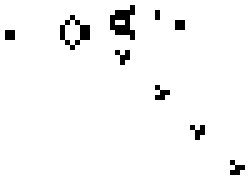
Cellular Automaton
Gliders, are of the world of Cellular Automaton, you have heard Murray Gell-Mann talk about it in context of Emergence the Game of Life is a little simulation of playing with Fundamental Principles, and Accidents. Life emerged the same way the gliders do, out of Complexity, Infinity of Time, Fundamental Principles, and Accidents (remember nobody counted the failed attempts).
Stephen Wolfram
Here is Stephen Wolfram in his “Computing a theory of everything” TED talk, reminding us to never pause after uttering the words “I invented a new kind of science” - Oof!.
Computing a theory of everything

Pentesting Android Applications
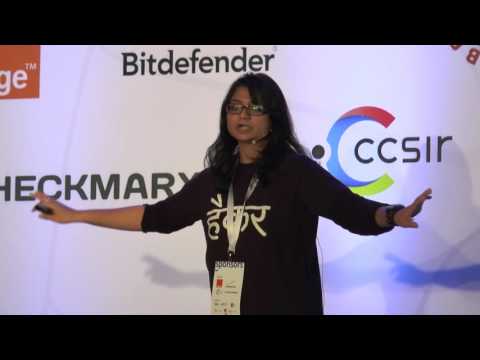
Network Penetration Testing for Beginners

White Hat Hackers
Without Pentesters, Ethical Hacking, or White Hat Hackers we would never become aware of vulnerabilities in our phones, smart homes, refrigerators, lockers - day to day lives. They do not keep information secret, and help us keep our family, homes, and possessions safer and more secure.
Smarter Every Day on Vulnerabilities in Smart Devices

Lock Picking Lawyer
Lock Picking Lawyer has 1.14M subscribers (Dec, 2019).
My Wife vs. Ben & Jerry’s Ice Cream Lock

Fortress Combination Padlock Decoded FAST and Bypassed

Gallium vs. Titalium - Abus Padlock Meets a Gruesome End
